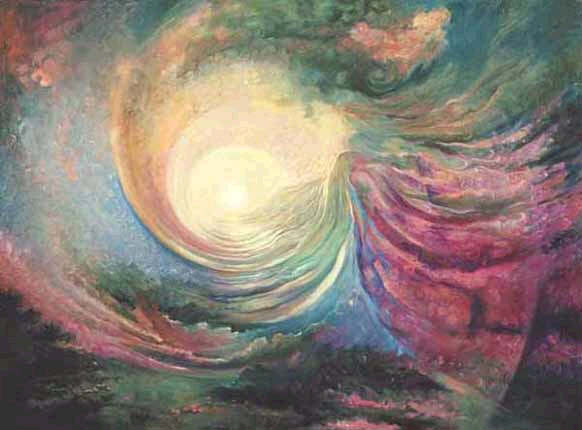Cardea
 I feel your breath on my skin like the gentle wind blowing in my face as I open to you in the morning.
I breathe your air, feeling it enter me, and it becomes our breath, sweet air - shared with all that is.
I feel your breath on my skin like the gentle wind blowing in my face as I open to you in the morning.
I breathe your air, feeling it enter me, and it becomes our breath, sweet air - shared with all that is.
Dew-fresh, I am called to gaze upon your beauty. I touch your sweet petals; they unfold, soft as velvet to my touch and I am renewed by your awakening.
Words come to me in gentle currents on the air as I breathe. Words that inspire, words that lift, words coming from my heart and my soul, sharing myself with You.
Beautiful Cardea, Keeper of the Four Winds, you who lives behind the North Wind in the starry castle at the hinge of the universe, you who is Mistress of all Openings, I call to you! I invite you to share this magical space with us!
Blessed Be, Bendis
"Ovid says of Cardea, apparently quoting a religious formula: 'Her power is to open what is shut; to shut what is open.' ..." Robert Graves, in the White Goddess
The Roman Goddess, Cardea, was keeper of the doors and had as Her principal protective emblem, a bough of Hawthorne. She looks both forward and backward in time. Benefactress of crafts people, she lives in a starry castle at the hinge of the universe behind the North Wind. She is the Keeper of the Four Winds.
She is honored at her festival, Beltane, and is also honored during the month of June - known as the "hinge of the year." Originally, Cardea was the hinge on which the year turned, that is, a goddess of the turning seasons. Swinging on a swing was part of a ritual to encourage the growth of crops.
Ancient Roman farmers hung balls, masks and small images of human figures, called oscilla, on trees or in doorways to swing in the wind. Children would skip along, hand in hand, swinging their arms, singing songs of summer.
That hinge on which turns the year is the North Star, so she was the Keeper of the Four Winds. The word, cardinal, meaning "very important, is connected to her name as well as the Latin, "cerdo" meaning craftsman, as she is benefactress of all crafts people.